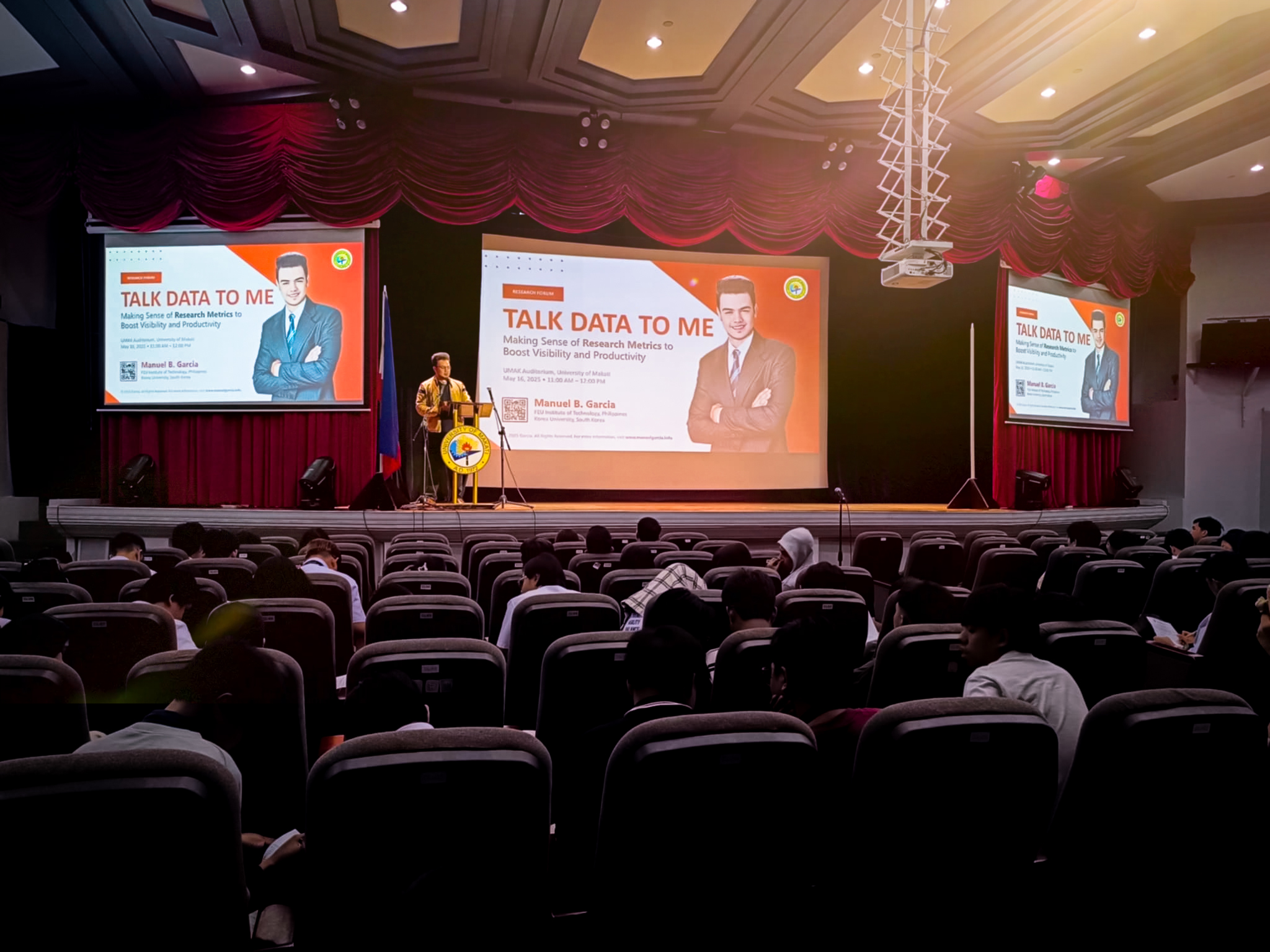Why Isn't My Paper Getting Cited? Understanding Metrics, Visibility, and the Path to Research Influence
I shared insights at the University of Makati on why research papers often go uncited and how I use metrics to boost visibility and impact.
Why Isn't My Paper Getting Cited?
It's a question many researchers ask — or don't ask often enough. In today's academic landscape, where publication is often treated as the finish line, it's easy to forget that visibility, engagement, and long-term impact don't just happen automatically.
On May 16, 2025, I had the opportunity to speak at the University of Makati on a topic that sits at the intersection of scholarship and strategy: how research metrics can be used not just to measure success, but to help create it.
The session, titled "Talk Data to Me: Making Sense of Research Metrics to Boost Visibility and Productivity," explored how academics can navigate the post-publication phase more intentionally and more effectively.

Far too often, meaningful and rigorous research goes unread, uncited, or unnoticed — not because it lacks value, but because it lacks visibility. While the quality of our work should speak for itself, in an increasingly noisy and competitive academic world, we have to help it be heard.
Metrics That Matter (and Sometimes Don't)
I opened the session with a simple question: "How do you measure how good you are at something?"
It wasn't a trick question — but it was meant to make the room pause. Because the moment we start talking about measurement, we also have to talk about what matters, who decides that, and what often gets overlooked in the process.
In academia, we often default to citations, impact factors, and indexes as the go-to answers. But I invited the audience to look deeper:
- What do citations really reflect?
- How can we interpret and use metrics without being misled by them?
- What role do alternative metrics (altmetrics) play in expanding our understanding of influence?
- What are practical, ethical ways to enhance discoverability without falling into the trap of vanity metrics?
I reframed metrics not as judgment tools, but as navigational instruments — imperfect, but still useful in steering our research toward visibility, collaboration, and real-world relevance.
From Numbers to Narratives
I also emphasized that this isn't about gaming the system. It's about becoming more intentional — understanding how our research moves through the academic ecosystem, and how we can make that journey smoother, more strategic, and more meaningful.
We explored practical strategies such as:
- Understanding journal-, article-, and author-level metrics
- Creating and maintaining ORCID and author profiles
- Using platforms like ResearchGate, Academia.edu, and Google Scholar
- Applying SEO principles to craft searchable titles and abstracts
- Maximizing institutional repositories and open access options
- Understanding global ranking frameworks like THE (Times Higher Education) and how they tie research quality to institutional visibility
Above all, I reinforced the idea that research communication is part of the research process — not an afterthought, but a continuation of scholarly impact.
Key Takeaways
As I wrapped up the session, I wanted to leave the audience with a few core ideas — takeaways that could guide our thinking long after the metrics have been explained and the dashboards closed.
These points were about reclaiming our agency as researchers: shaping how our work lives, moves, and makes a difference in the world.
- Publishing isn't the finish line. It's just one milestone in the journey toward research impact.
- Metrics are tools, not truths. Used wisely, they can guide meaningful engagement.
- Visibility isn't vanity. It's about sharing knowledge responsibly and effectively.
- Altmetrics matter. Mentions, downloads, and online discussions complement traditional citations.
- Small steps make a difference. Strategic profile-building and thoughtful dissemination significantly boost discoverability.
If you're a researcher looking for ways to make your work more visible and impactful — or a university exploring how to build capacity in research strategy and metrics literacy — I'd be happy to connect.
Let's keep talking data. Because research deserves more than a DOI. It deserves an audience.

